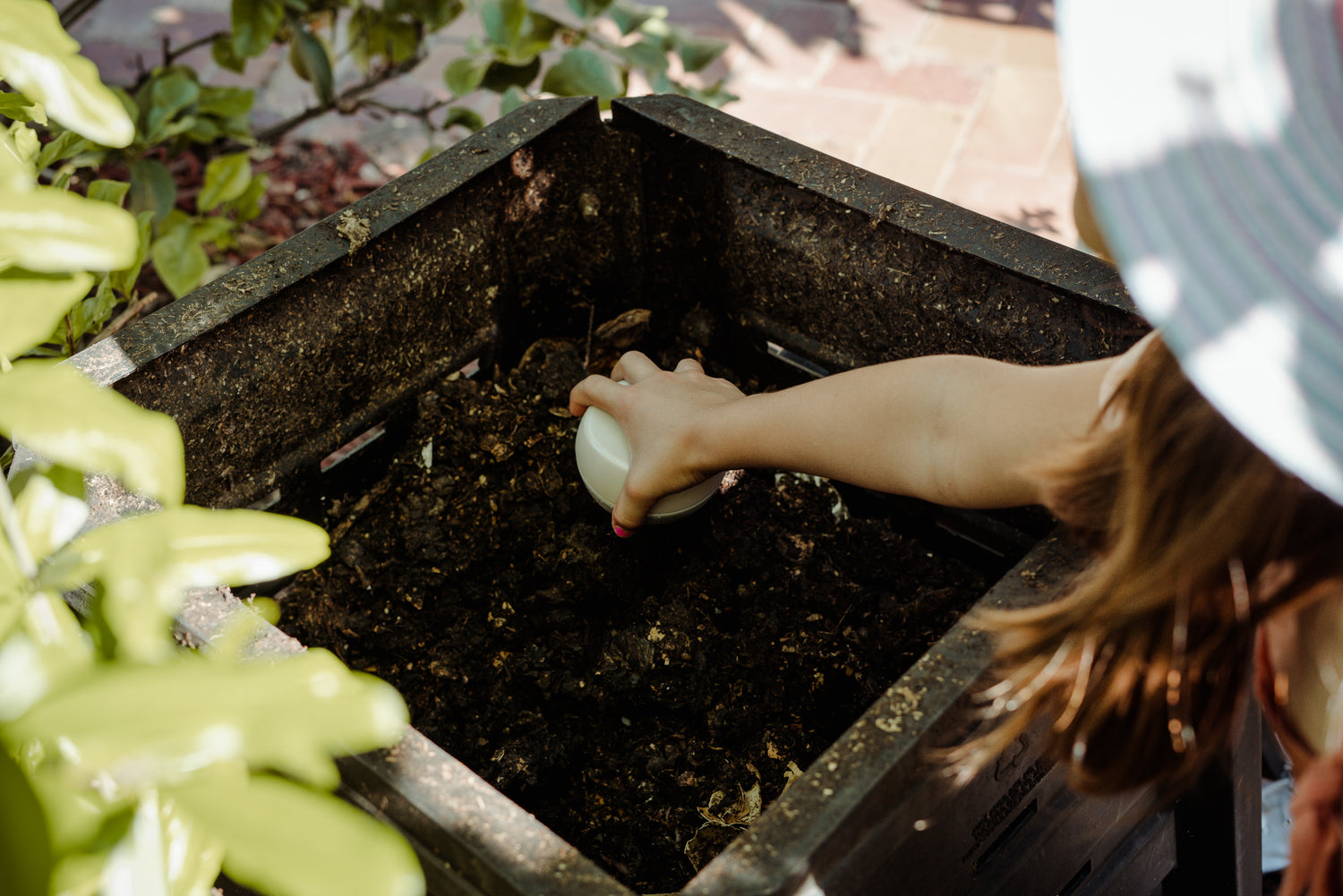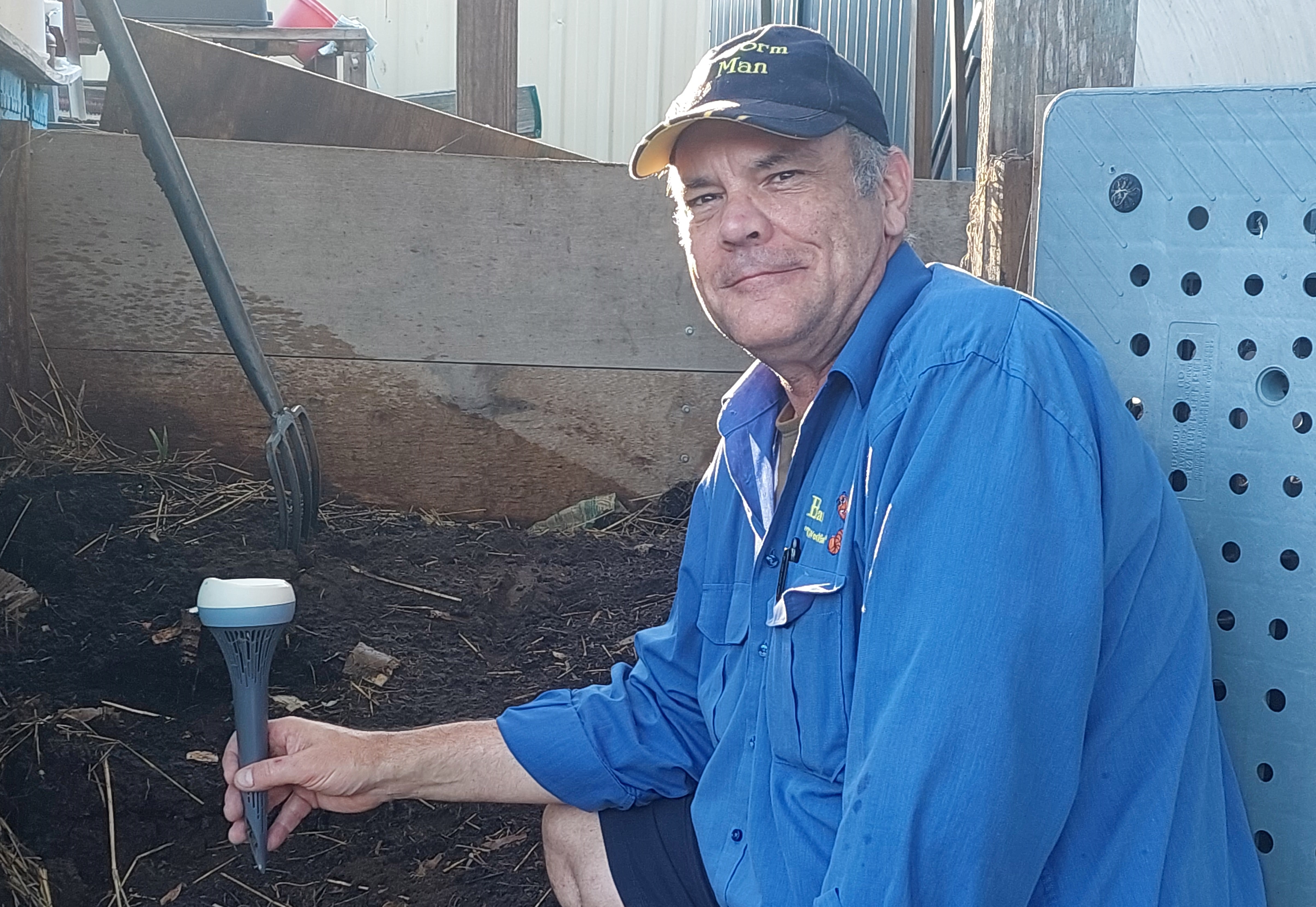Composting is a great way to reduce waste and greenhouse gas emissions while creating nutrient-rich soil. However, managing a compost pile can be challenging, requiring careful monitoring and attention to detail. Luckily, advances in technology have made composting easier than ever before, with the introduction of a smart compost monitoring device, Monty Monitor. Here are some of the ways in which Monty Monitor can make a positive impact on the environment and climate change.
1. Optimising the Composting Process
Composting is a complex process that involves the breakdown of organic materials by microorganisms. The process requires a delicate balance of moisture, temperature, and oxygen levels to work efficiently. Monty Monitor helps users optimise the composting process by continuously monitoring these factors and providing real-time feedback. By keeping the compost pile in ideal conditions, Monty Monitor ensures that the composting process is as efficient as possible, reducing the amount of time and resources required to produce high-quality compost.
2. Reducing Methane Emissions
When organic waste is sent to landfills, it produces methane, a potent greenhouse gas that contributes to climate change. In fact, landfills are the third-largest source of methane emissions in the United States, accounting for 14% of total emissions (1). Composting diverts organic waste from landfills and can significantly reduce methane emissions. Monty Monitor helps users create high-quality compost, which can be used to enrich soil, reducing the need for synthetic fertilisers that contribute to greenhouse gas emissions.
3. Improving Soil Health
Composting is a great way to improve soil health, which, in turn, can help sequester carbon from the atmosphere. According to the USDA, composting can increase the soil's carbon sequestration capacity by up to 10-15% (2). By helping users create high-quality compost, Monty Monitor can contribute to healthier soil and increased carbon sequestration, helping mitigate the effects of climate change.
4. Saving Resources
Composting can also reduce the need for synthetic fertilisers and other inputs that have a significant carbon footprint in their production and transportation. By using compost produced with Monty Monitor, users can reduce their reliance on synthetic fertilisers, saving resources and reducing their carbon footprint.
In conclusion, Monty Monitor is a smart compost monitoring device that can have a significant impact on the environment and climate change. By optimising the composting process, reducing methane emissions, improving soil health, and saving resources, Monty Monitor helps users create high-quality compost while minimising their impact on the environment.
Sources:
United States Environmental Protection Agency. (2021). Methane Emissions. Retrieved from https://www.epa.gov/ghgemissions/sources-greenhouse-gas-emissions#landfills
United States Department of Agriculture. (2021). Composting: A Way to Reduce Greenhouse Gas Emissions. Retrieved from https://www.nrcs.usda.gov/wps/portal/nrcs/detail/national/technical/nra/?cid=nrcs143_014210



Leave a comment
This site is protected by hCaptcha and the hCaptcha Privacy Policy and Terms of Service apply.